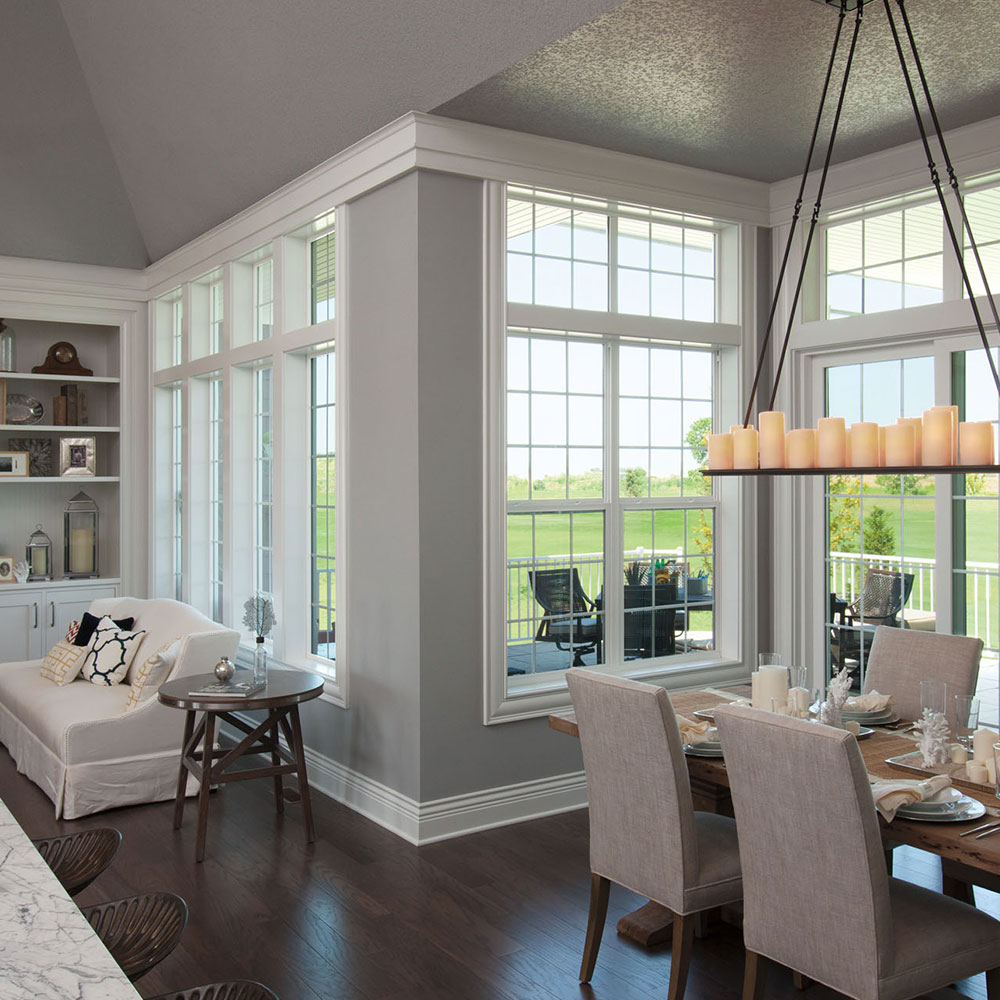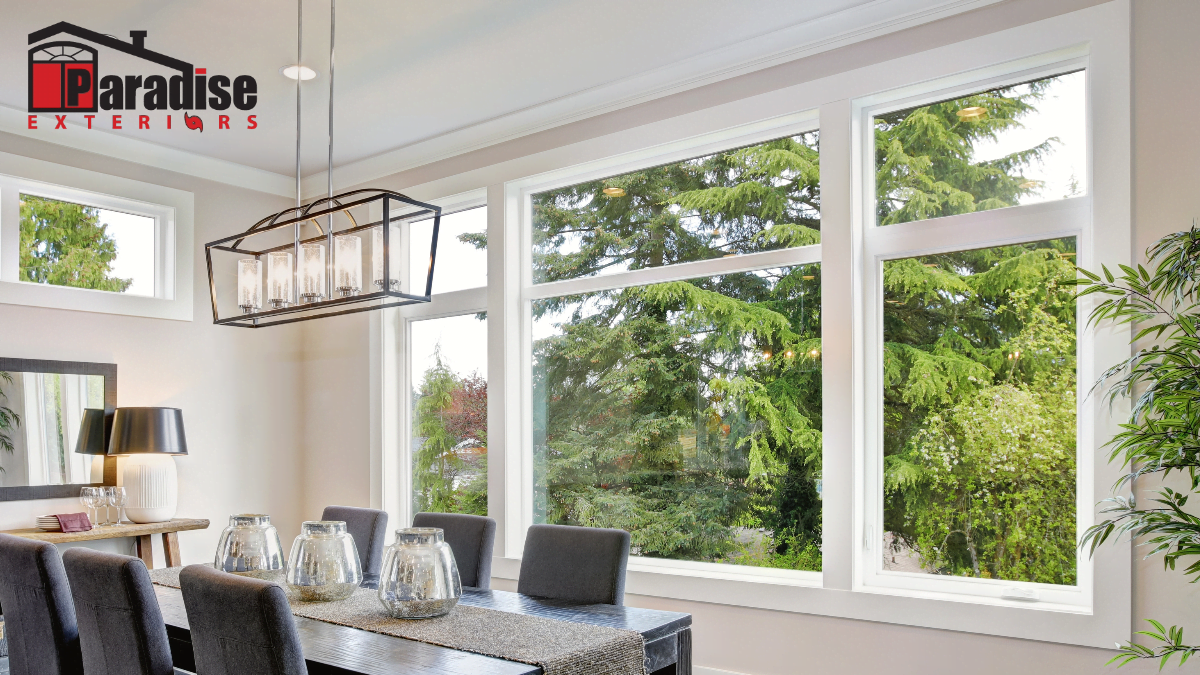High-Quality Window Replacement Solutions in Your Area
High-Quality Window Replacement Solutions in Your Area
Blog Article
Upgrade Your Home With Energy-Efficient Home Window Substitutes
In the world of home enhancement, the choice to update to energy-efficient window replacements can substantially influence both the performance and appearances of a home (Houston Pella windows). As house owners look for ways to boost the efficiency and sustainability of their home, the option of home windows plays a critical function in achieving these objectives. Beyond the surface area degree of mere looks, energy-efficient home windows provide a plethora of advantages that go past simple aesthetic appeal. With a careful option procedure that takes into consideration numerous aspects, from glass kinds to setup strategies, embarking on this home upgrade journey could prove to be a transformative venture.
Benefits of Energy-Efficient Windows

The setup of energy-efficient windows offers substantial savings on utility expenses while improving environmental sustainability. Energy-efficient windows are designed to decrease heat loss and gain, reducing the requirement for home heating and cooling down systems to work overtime. By properly shielding the home, these windows assist preserve a comfortable indoor temperature level year-round, leading to reduced power intake and reduced utility prices. In addition, energy-efficient windows can help regulate dampness levels within the home, decreasing the threat of mold and mildew and mildew growth.
Beyond the monetary advantages, energy-efficient home windows contribute to environmental sustainability by decreasing carbon discharges connected with energy manufacturing. On the whole, spending in energy-efficient windows not only boosts the comfort and effectiveness of a home yet additionally straightens with eco mindful techniques.
Sorts Of Energy-Efficient Glass
Numerous advanced sorts of energy-efficient glass deal special properties that deal with various needs and preferences in enhancing the sustainability and performance of structures. Low-emissivity (Low-E) glass is a popular option designed to reduce the amount of ultraviolet and infrared light that can go through the glass, consequently minimizing warm transfer. This kind of glass assists keep a constant interior temperature level, reducing the requirement for heating or cooling down systems, and eventually reducing energy prices. One more ingenious alternative is spectrally discerning glass, which permits noticeable light to pass via while obstructing specific kinds of infrared radiation. This aids in preserving a comfy indoor setting while decreasing heat gain. Triple-pane glass, being composed of 3 layers of glass with insulating gas between them, offers enhanced thermal insulation, making it highly energy-efficient. Furthermore, self-cleaning glass with a special coating that damages down and loosens dust when exposed to sunlight can decrease maintenance demands and keep windows looking tidy. Each type of energy-efficient glass offers distinct benefits, enabling home owners to pick the most appropriate choice based upon their particular demands and objectives.
Elements to Think About When Picking
When view it contemplating energy-efficient home window replacements, it is imperative to meticulously assess specific factors that line up with your sustainability goals and desired energy cost savings. The U-factor actions how well the window protects, with reduced numbers showing much better insulation, while the SHGC suggests the home window's capacity to obstruct warm from sunshine. By carefully examining these aspects, you can pick energy-efficient windows that improve convenience, minimize power costs, and profit the atmosphere.
Installment and Maintenance Tips

Normal maintenance is essential to maintaining the efficiency of your energy-efficient home windows. Inspect the home windows regularly for any kind of signs of wear, damage, or sealer degeneration. Tidy the frameworks, tracks, and glass consistently utilizing light soap and water to remove dust and gunk that can affect performance. Inspect the weather-stripping and seals for any gaps or rips and change them if required to preserve the home windows' power performance.
Furthermore, lubricate moving components such as locks and hinges to guarantee smooth operation. By adhering to these installation and upkeep suggestions, you can boost the energy performance of your home and lengthen the lifespan of your energy-efficient windows.
Cost-Benefit Analysis of Upgrading

Energy-efficient windows are developed to decrease heat transfer, lowering the need for heating and cooling systems to function overtime. This can result in substantial financial savings on power bills, specifically in regions with extreme temperature levels. Additionally, energy-efficient windows can enhance the total value of your home, making it much more appealing to possible buyers if you determine to sell in the future.
When computing the cost-benefit evaluation, element in the prospective cost savings on energy costs, any readily available motivations or rebates, and the lifespan of the windows. While the preliminary cost may be higher, the long-lasting cost savings and advantages of energy-efficient home windows make them a wise financial investment for homeowners aiming to boost their building's energy performance and worth.

Verdict
Finally, upgrading to energy-efficient home window replacements supplies various advantages such as reduced energy usage, increased comfort, and expense financial savings. By selecting the proper type of energy-efficient glass and considering elements like framework material and setup, home owners can make the most of the performance of their home windows. Normal maintenance and proper installation are crucial for lasting efficiency. In general, the cost-benefit analysis of upgrading to energy-efficient windows shows that the initial investment can result in significant financial savings in the lengthy run.
When considering energy-efficient window replacements, it is important to thoroughly evaluate specific factors that straighten with your sustainability purposes and preferred energy savings. The U-factor measures just how well the home window protects, with lower numbers suggesting far better insulation, while the SHGC suggests the window's ability to obstruct warm from sunlight. By meticulously reviewing these aspects, you can select energy-efficient home windows that improve comfort, reduce power costs, and profit the atmosphere.
While energy-efficient windows might have a higher ahead of time price compared to typical home windows, the long-term advantages usually exceed the initial financial investment.In final thought, upgrading to energy-efficient home window replacements provides many benefits such as reduced power intake, raised convenience, and cost financial savings.
Report this page